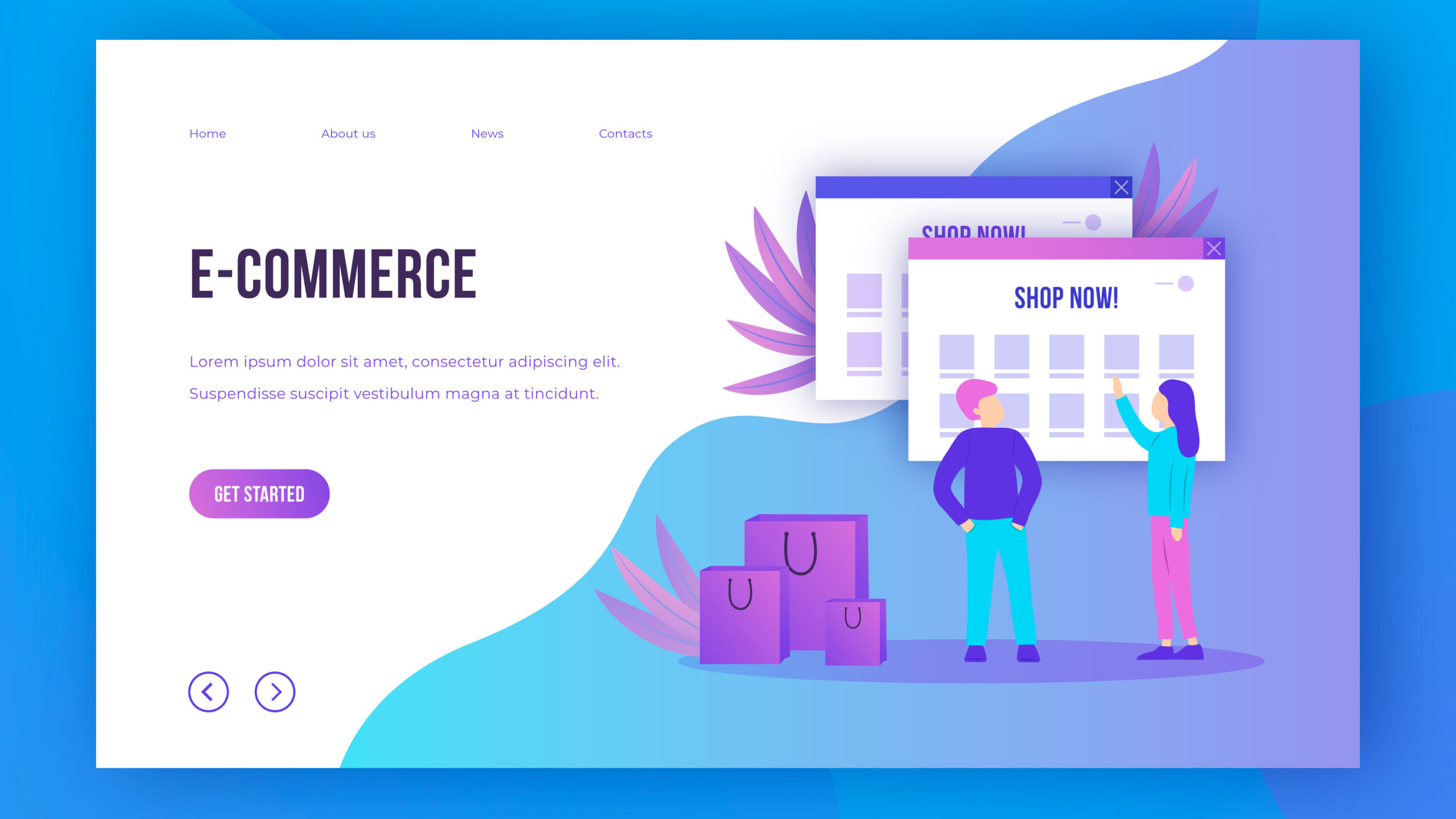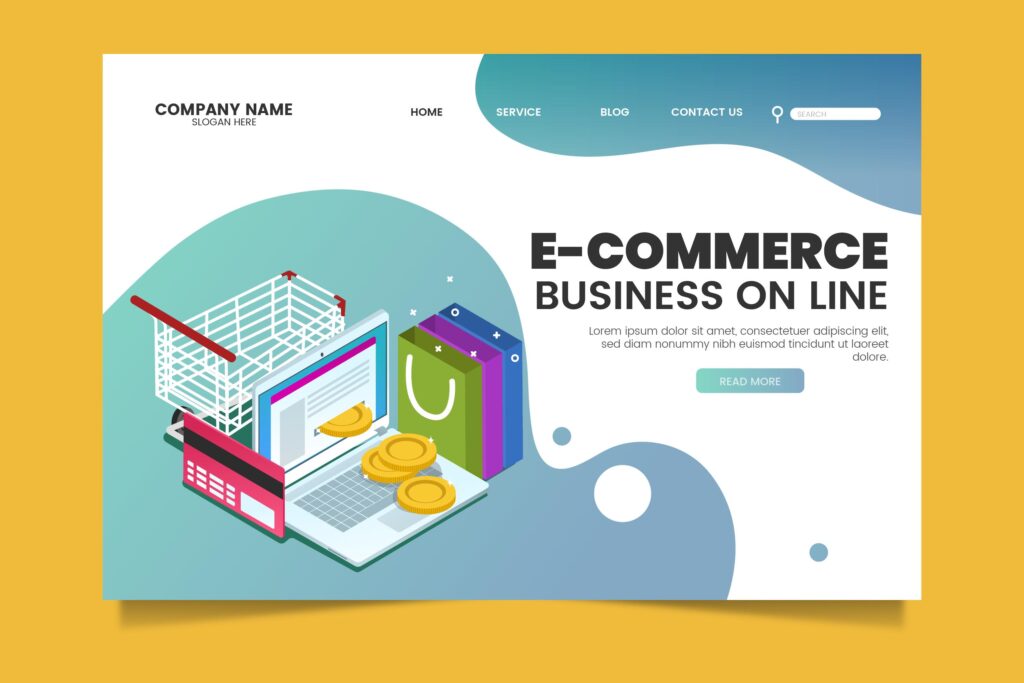
Table of Contents
E-Commerce Website Development in London: Empowering Your Business for Digital Success
In the bustling metropolis of London, where opportunities abound and businesses strive for growth, establishing a strong online presence is imperative for success. In this article, we delve into the world of E-commerce Website Development in London, exploring the significance of e-commerce platforms, the benefits they offer to businesses, and how partnering with the right development agency can drive your digital success. From optimizing user experiences to boosting conversions, we unravel the key components of e-commerce websites that elevate your brand above the competition.
1. The E-Commerce Boom in London

As the heart of the UK’s business landscape, London boasts a thriving e-commerce sector. The city’s diverse customer base, coupled with its global influence, presents a lucrative market for businesses aiming to tap into the world of online commerce. With increasing consumer preference for digital shopping experiences, having a robust e-commerce website has become non-negotiable for businesses of all sizes.
2. Understanding E-Commerce Website Development
– The Foundation of Your Digital Store: like shopify store
E-commerce website development lays the foundation for your digital storefront. It involves creating an online platform where customers can explore your products or services, add items to their cart, and make secure transactions.
– User-Centric Design:
User experience is paramount in e-commerce development. A well-designed website enhances customer satisfaction, reduces bounce rates, and increases the likelihood of conversions.
– Responsive and Mobile-Optimized:
With the majority of consumers accessing the internet on mobile devices, ensuring your e-commerce website is responsive and mobile-friendly is crucial for reaching a broader audience.
3. Key Features of a Successful E-Commerce Website
– Product Showcase:
Presenting your products or services in an appealing manner, with high-quality images and detailed descriptions, entices customers to make informed purchase decisions.
– Smooth Navigation:
Intuitive navigation with clear categories and a user-friendly interface streamlines the shopping experience, enhancing customer satisfaction.
– Secure Payment Gateway:
The inclusion of a secure payment gateway builds trust with customers, assuring them that their financial transactions are protected.
– Customer Reviews and Ratings:
Integrating customer reviews and ratings on your e-commerce website adds social proof, influencing potential buyers to trust your brand.
4. Benefits of E-Commerce Website Development
– 24/7 Accessibility:
An e-commerce website allows customers to shop at their convenience, transcending geographical and time zone limitations.
– Global Reach:
Expanding your business beyond London is facilitated by e-commerce, enabling you to reach customers worldwide.
– Data-Driven Insights:
E-commerce platforms provide valuable data and analytics, allowing businesses to make data-driven decisions and refine their marketing strategies.
5. Choosing the Right E-Commerce Development Agency
– Expertise and Experience:
Look for a development agency with a proven track record in creating successful e-commerce websites.
London is a global hub for e-commerce, and there are a number of reputable web development agencies in the city that can help you create a successful online store.
In this article, we will discuss the key steps involved in e-commerce website development, and we will provide some tips on how to choose the right agency for your needs.
1. Choose a business model
The first step in e-commerce website development is to choose a business model. There are two main types of e-commerce businesses:
- Retail: This type of business sells products directly to consumers.
- Service: This type of business sells services to consumers or businesses.
Once you have chosen a business model, you need to decide what products or services you will sell. You also need to determine your target market.
2. Select a value delivery method
The next step is to select a value delivery method. This is the way that you will deliver your products or services to your customers.
There are two main types of value delivery methods:
- Direct: This means that you ship the products directly to your customers.
- Indirect: This means that you sell your products through a third-party marketplace, such as Amazon or eBay.
3. Do your research
Before you start developing your e-commerce website, it is important to do your research. This includes researching your target market, your competitors, and the e-commerce industry as a whole.
You should also research different web development agencies in London to find one that is a good fit for your needs.
4. Write an e-commerce business plan
An e-commerce business plan is a document that outlines your business goals, strategies, and financial projections. It is an important tool for securing funding and attracting customers.
Your e-commerce business plan should include the following sections:
- Executive summary
- Business overview
- Marketing plan
- Financial projections
- Appendix
5. Build your e-commerce website
Once you have completed your research and written your e-commerce business plan, you can start building your website.
There are a number of different platforms that you can use to build your e-commerce website, such as WooCommerce, Shopify, and Magento.
6. Launch your e-commerce website
Once your e-commerce website is built, you need to launch it. This involves promoting your website and driving traffic to it.
You can promote your website through a variety of channels, such as search engine optimization (SEO), social media marketing, and paid advertising.
7. Optimize your e-commerce website
Once your e-commerce website is launched, you need to optimize it for search engines. This involves making sure that your website is well-designed, easy to use, and contains relevant content.
You can optimize your e-commerce website for search engines by following the following tips:
- Use relevant keywords throughout your website.
- Create high-quality content.
- Optimize your website’s title tags and meta descriptions.
- Build backlinks to your website.
8. Manage your e-commerce website
Once your e-commerce website is up and running, you need to manage it on an ongoing basis. This includes tasks such as:
- Processing orders
- Managing inventory
- Providing customer support
- Updating your website’s content
Conclusion
E-commerce website development in London can be a complex process, but it is also a rewarding one. By following the steps outlined in this article, you can create a successful online store that will help you grow your business.
Here are some additional tips for choosing an e-commerce web development agency in London:
- Get quotes from multiple agencies.
- Ask for references from previous clients.
- Make sure the agency has experience in your industry.
- Make sure the agency understands your business goals.
- Make sure the agency is responsive to your needs.
With careful planning and execution, you can create a successful e-commerce website that will help you achieve your business goals.thumb_upthumb_downshareGoogle itmore_vert
“how to get e commerce website development london”
How to Get E-Commerce Website Development in London
London is a global hub for e-commerce, and there are a number of reputable web development agencies in the city that can help you create a successful online store.
If you’re looking to get e-commerce website development in London, there are a few things you need to do first.
1. Choose a web development agency
There are a number of different web development agencies in London, so it’s important to choose one that is a good fit for your needs. When choosing an agency, you should consider the following factors:
- The agency’s experience in e-commerce: Make sure the agency has experience in developing e-commerce websites.
- The agency’s portfolio: Look at the agency’s portfolio to see examples of their previous work.
- The agency’s pricing: Get quotes from multiple agencies to compare prices.
- The agency’s communication style: Make sure the agency is easy to communicate with and that they understand your needs.
2. Define your requirements
Once you’ve chosen a web development agency, you need to define your requirements. This includes things like the features you want on your website, the design you want, and the budget you have.
It’s important to be clear about your requirements so that the agency can give you an accurate estimate and deliver a website that meets your needs.
3. Work with the agency
Once the agency has a good understanding of your requirements, they will start working on your website. This will involve a number of steps, such as:
- Designing the website: The agency will create a design for your website that meets your requirements.
- Developing the website: The agency will develop the website using the latest technologies.
- Testing the website: The agency will test the website to make sure it is working properly.
- Launching the website: The agency will launch your website and help you promote it.
4. Manage the project
It’s important to manage the project closely with the agency to make sure that the website is developed according to your requirements. This includes things like:
- Communicating with the agency: Make sure you communicate with the agency regularly to keep track of the progress of the project.
- Reviewing the work: Review the work of the agency regularly to make sure it is meeting your expectations.
- Making changes: If you need to make changes to the website, make sure you do so early in the project to avoid any delays.
5. Launch the website
Once the website is developed and tested, it’s time to launch it. The agency will help you promote the website and drive traffic to it.
Launching your website is an exciting time, but it’s important to remember that it’s just the beginning. The real work starts after the website is launched, as you need to continue to promote it and improve it over time.
Conclusion
Getting e-commerce website development in London is a great way to start your online business. By following the steps outlined in this article, you can find a reputable web development agency that will help you create a successful website.
Here are some additional tips for getting e-commerce website development in London:
- Start your research early. The sooner you start looking for an agency, the more likely you are to find one that is a good fit for your needs.
- Get quotes from multiple agencies. This will help you compare prices and find the best agency for your budget.
- Read reviews of different agencies. This will give you an idea of what other businesses have experienced working with each agency.
- Ask for references from previous clients. This is a great way to get feedback from businesses that have worked with the agency in the past.
e commerce website development londone commerce website development londone commerce website development londone commerce website development londone commerce website development londone commerce
e commerce website development londone commerce website development londone commerce website development londone commerce website development londone commerce website development londone commerce website development londone commerce website development londone commerce website development londone commerce website development londone commerce website development londone commerce website development londone commerce website development londone commerce website development london

